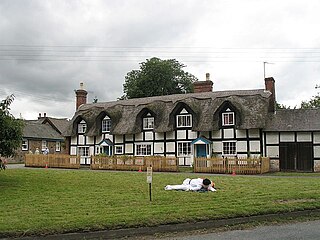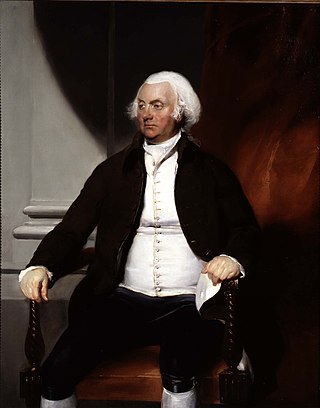Related Research Articles

The Puritans were English Protestants in the 16th and 17th centuries who sought to purify the Church of England of Roman Catholic practices, maintaining that the Church of England had not been fully reformed and should become more Protestant. Puritanism played a significant role in English history, especially during the Protectorate.
Robert Abbot was an English theologian who promoted puritan doctrines. With a living at Cranbrook, Kent, he wrote anti-Catholic works and cultivated a local circle among the Kent gentry.

Meric Casaubon, son of Isaac Casaubon, was a French-English classical scholar. He was the first to translate the Meditations of Marcus Aurelius into English.

The Church of England traces its history back to 597. That year, a group of missionaries sent by the pope and led by Augustine of Canterbury began the Christianisation of the Anglo-Saxons. Augustine became the first archbishop of Canterbury. Throughout the Middle Ages, the English Church was a part of the Catholic Church led by the pope in Rome. Over the years, the church won many legal privileges and amassed vast wealth and property. This was often a point of contention between Kings of England and the church.

Sir Robert Harley was an English statesman who served as Master of the Mint for Charles I. A devout Puritan, he supported Parliament in the Wars of the Three Kingdoms.

The Elizabethan Religious Settlement is the name given to the religious and political arrangements made for England during the reign of Elizabeth I (1558–1603). Implemented between 1559 and 1563, the settlement is considered the end of the English Reformation, permanently shaping the theology and liturgy of the Church of England and laying the foundations of Anglicanism's unique identity.
Brilliana, Lady Harley, néeBrilliana Conway, was an English letter writer.

Brampton Bryan is a small village and civil parish situated in north Herefordshire, England close to the Shropshire and Welsh borders.

Sir Edward Harley was an English politician from Herefordshire. A devout Puritan who fought for Parliament in the First English Civil War, Harley belonged to the moderate Presbyterian faction, which opposed the involvement of the New Model Army in the peace negotiations that followed victory in 1646. Elected MP for Herefordshire in 1646, he was one of the Eleven Members forced into temporary exile by the army in 1647.
Henry Jacob (1563–1624) was an English clergyman of Calvinist views, who founded a separatist congregation associated with the Brownists.

Henry Jessey or Jacie was one of many English Dissenters. He was a founding member of the Puritan religious sect, the Jacobites. Jessey was considered a Hebrew and a rabbinical scholar. His active philosemitism has led him to be described as "among Israel's greatest seventeenth-century benefactors."

Brian Duppa was an English bishop, chaplain to the royal family, Royalist and adviser to Charles I of England.

Edward Harley, 4th Earl of Oxford and Earl Mortimer,, styled Lord Harley from 1741 to 1755, was a British peer and Tory politician.
Walter Cradock was a Welsh Anglican clergyman, who became a travelling evangelical preacher. He was a founder of the first Independent church in Wales in 1638, at Llanvaches, with William Wroth and William Thomas, an early Baptist.

William Gouge (1575–1653) was an English Puritan clergyman and author. He was a minister and preacher at St Ann Blackfriars for 45 years, from 1608, and a member of the Westminster Assembly from 1643.
Irene Joan Thirsk, was a British economic and social historian, specialising in the history of agriculture. She was the leading British early modern agrarian historian of her era, as well as an important social and economic historian. Her work highlighted the regional differences in agricultural practices in England. She also had an interest in food history and local English history, in particular of Hadlow, Kent.
Patrick "Pat" Collinson, was an English historian, known as a writer on the Elizabethan era, particularly Elizabethan Puritanism. He was emeritus Regius Professor of Modern History, University of Cambridge, having occupied the chair from 1988 to 1996. He once described himself as "an early modernist with a prime interest in the history of England in the sixteenth and seventeenth centuries."

Arminianism was a controversial theological position within the Church of England particularly evident in the second quarter of the 17th century. A key element was the rejection of predestination. The Puritans fought against Arminianism, and King James I of England opposed it before, during, and after the Synod of Dort, 1618–1619, where the English delegates participated in formulating the Calvinist Canons of Dort, but his son Charles I, favored it, leading to deep political battles. The Methodists, who espoused a variant of the school of thought called Wesleyan–Arminian theology, branched off the Church of England in the 18th century.
Julines Herring (1582–1644/5) was a Puritan clergyman within the Church of England who served in Derbyshire and at Shrewsbury. Ejected from his positions for nonconformity, he became a minister serving the English-speaking community in the Netherlands. He was a staunch proponent of Presbyterianism and an opponent of separatism.
Judith Diane Maltby is an American-born Anglican priest and historian, who specialises in post-Reformation church history and the history of early modern Britain. She has been the chaplain and a Fellow of Corpus Christi College, Oxford, since 1993, and reader in church history at the University of Oxford since 2004.
References
- ↑ "Reformations Old and New: Essays on the Socio-Economic Impact of Religious Change, c. 1470-1630". The Journal of Ecclesiastical History (January , 1999). 1999-01-01. Retrieved 2008-03-11.
Jacqueline Eales argues for a continuity of Puritanism on 'a road to revolution' from 1559 to 1642, with common techniques of opposition through books
- ↑ "Early Modern Women's Letter Writing, 1450-1700". The English Historical Review. February 2003. Retrieved 2008-03-11.
Jacqueline Eales, the established authority on the Harleys in the seventeenth century, brings further thought and new evidence into play in her discussion
- ↑ "Early Modern Kent 1540-1640". Albion. June 2002. Retrieved 2008-03-11.
Jacqueline Eales study of ideological politics from 1558-1640 is perhaps the most ambitious and controversial part of the book